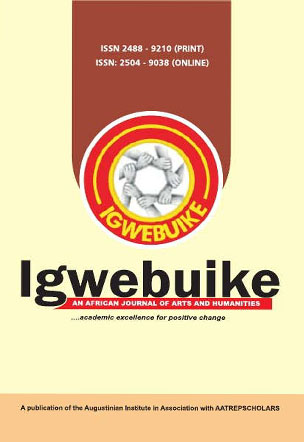
Vol. 9 No. 3, 2023
ABSTRACT
Isa 56:1-8 serves as the prologue of 56-66. This passage is characterized by its universalism. It specifies what makes one to belong to the community of Godís people in the era of salvation: keeping justice, practicing righteousness, observing the Sabbath, holding fast to what is good, and refraining from evil. "Justice" (mispa?) emphasizes more the order desired by God, and "righteousness" (sedaqah) accords with conformity to societal norms of justice. It also includes the elimination of anything that is at variance to peace and good order. These are the ideals which the prophet calls his hearers to hold fast to as they await the era of salvation. The imminent salvation is open to all nations. In this, Isa 56:7 concludes with a strikingly universalistic note. It states that God's salvific purpose is for all peoples without restriction. God's salvific action involves drawing people together. This article studies Isaiah's message of inclusion (Isa 56:1-8) in the light of Jesus' Gospel of inclusion in Mk 11:17d. The work uses an exegetical method of biblical analysis. The Bible version employed in this work is the New Revised Standard Version.
